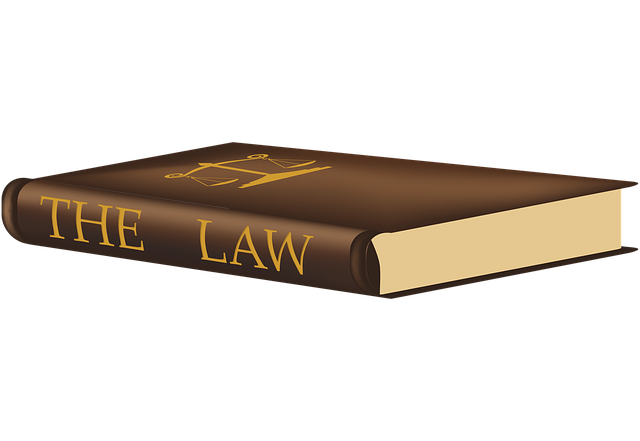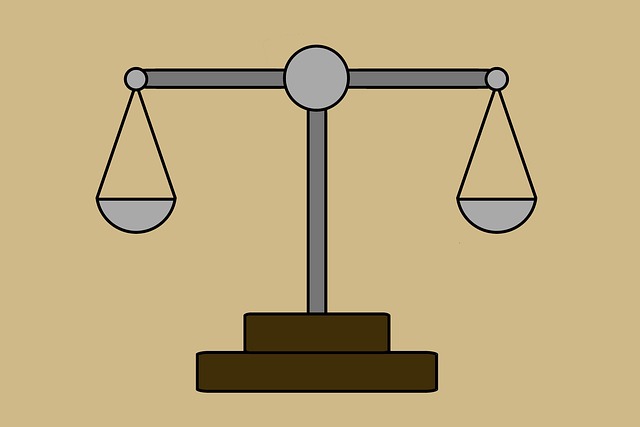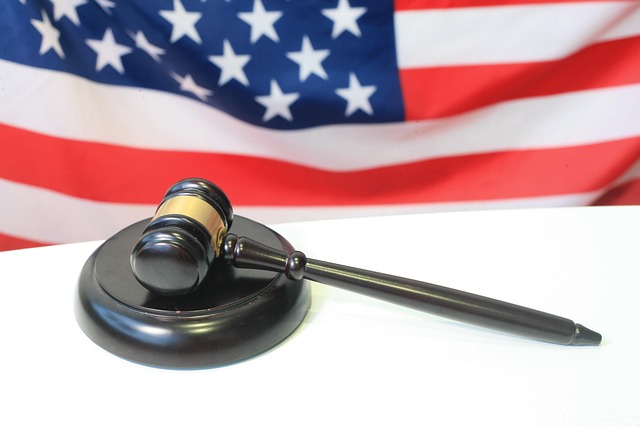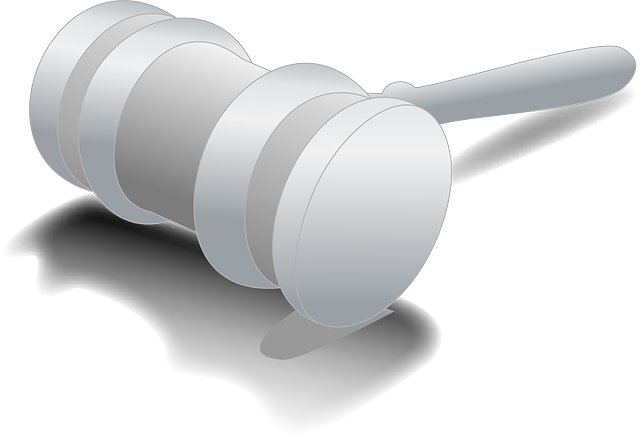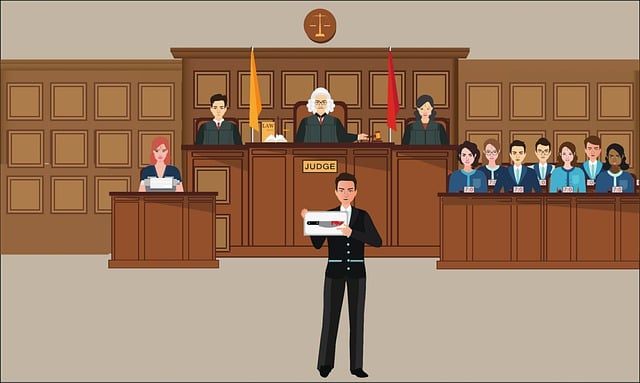The burden of proof, requiring moral certainty beyond reasonable doubt, profoundly influences criminal trial verdicts. Defense attorneys play a crucial role in scrutinizing evidence, identifying weaknesses, and raising doubts to safeguard clients' rights and ensure fair outcomes, especially in complex cases like white-collar crimes. Understanding its impact is essential for effective defense strategies that challenge accusations and distinguish between guilt and innocence.
Criminal Defense Attorneys play a pivotal role in navigating the complex landscape of criminal trials. Understanding the burden of proof is essential for any defense strategy, as it determines the strength of accusations. This article delves into the intricate dynamics between the burden of proof and its impact on verdicts. We explore how attorneys evaluate evidence, challenge accusations, and navigate presumptions to ensure fair outcomes. Through case studies, we demonstrate that a thorough understanding of proof can significantly influence the results of criminal cases.
- Understanding Burden of Proof in Criminal Trials
- The Role of Defense Attorneys in Proof Evaluation
- Strategies for Challenging Accusation Evidence
- Presumptions and Their Impact on Verdicts
- Case Studies: How Proof Influences Outcomes
Understanding Burden of Proof in Criminal Trials

In any criminal trial, understanding the burden of proof is paramount for both defendants and their respective business, as it significantly affects verdicts. The prosecution bears the responsibility to prove beyond a reasonable doubt that the accused has committed the crime in question. This standard, often referred to as “beyond a reasonable doubt,” requires the jury or judge to be convinced to a moral certainty of the defendant’s guilt. Such a high threshold is placed to safeguard individuals from wrongful convictions and ensure fairness across the country in general criminal defense practices.
The burden of proof plays a crucial role in navigating the legal process, guiding the presentation of evidence and arguments. If the prosecution fails to meet this standard, the defendant may be acquitted, demonstrating that the legal system prioritizes accuracy over potential errors. This principle is fundamental in maintaining public trust and ensuring that justice is served, even when cases are complex or controversial.
The Role of Defense Attorneys in Proof Evaluation

Defense attorneys play a pivotal role in evaluating proof during criminal cases, especially as the burden of proof significantly influences verdicts. Their primary task is to scrutinize evidence presented by prosecutors and identify any flaws or weaknesses that could potentially benefit their clients. This meticulous process begins at the initial stages of the investigative and enforcement process, where lawyers examine facts, collect alibis, and challenge the admissibility of evidence.
In cases involving white-collar and economic crimes, defense attorneys must possess a deep understanding of complex legal issues. They strategically dissect the prosecution’s case during jury trials, presenting counterarguments and raising reasonable doubts to ensure fair verdicts. By employing these tactics, defense lawyers protect their clients’ rights and ensure that justice is served based on solid evaluation of evidence and adherence to legal principles.
Strategies for Challenging Accusation Evidence

In any criminal case, the burden of proof lies with the prosecution to establish guilt beyond a reasonable doubt. This strategic advantage for defense attorneys allows them to employ various tactics to challenge accusation evidence. One key strategy involves scrutinizing the credibility and reliability of witness testimonies, which often form the backbone of prosecutorial cases. Defense lawyers may cross-examine witnesses to uncover inconsistencies or motives, aiming to seed doubt in the jury’s mind.
Additionally, criminal defense attorneys can leverage legal loopholes and procedural errors to achieve a complete dismissal of all charges. In high-stakes cases, where the evidence is circumstantial or questionable, they might argue that the prosecution has not met its burden of proof. By presenting alternative explanations or casting doubt on the integrity of evidence collection and presentation, these legal professionals can significantly impact verdicts, ultimately protecting their clients’ rights and ensuring fair trials.
Presumptions and Their Impact on Verdicts

The burden of proof is a fundamental concept in criminal defense, significantly influencing verdicts in jury trials. It refers to the level of certainty required for a jury to convict an accused person. In most jurisdictions, this standard is beyond a reasonable doubt, meaning that the prosecution must present compelling evidence for a conviction. This presumption places a heavy responsibility on the legal system to ensure accurate and fair judgments, especially when dealing with corporate and individual clients across the country.
Understanding how the burden of proof affects verdicts is crucial in navigating complex criminal cases. Defense attorneys play a pivotal role in challenging the prosecution’s evidence and presenting reasonable doubts to the jury. This strategic approach ensures that the rights of accused individuals are protected, fostering a balanced legal process that distinguishes between guilt and innocence, regardless of the defendant’s background or the type of case.
Case Studies: How Proof Influences Outcomes

In criminal cases, the burden of proof lies at the heart of ensuring a fair trial. It dictates the level of certainty required to convict an accused person. Understanding how this concept influences outcomes is crucial in gauging the effectiveness of legal strategies employed by Criminal Defense Attorneys. Case studies reveal that the application of evidence and the interpretation thereof can significantly sway verdicts throughout all stages of the investigative and enforcement process.
Attorneys must master the art of navigating the respective business of presenting and challenging proof to win challenging defense verdicts. A thorough analysis of facts, witness testimonies, and available evidence is pivotal in building a robust defense strategy. This involves dissecting the prosecution’s case, identifying weaknesses or inconsistencies in their proof, and presenting alternative narratives that cast reasonable doubt. Ultimately, the success or failure of these efforts hinges on how effectively the burden of proof is managed at each juncture, underscoring its profound impact on the final outcome of criminal cases.
Understanding the burden of proof is paramount in criminal defense, as it significantly influences verdicts. Defense attorneys play a crucial role in evaluating evidence and challenging accusations, ensuring that the prosecution meets its high-stakes responsibility. By employing strategic tactics to assess presumptions and examining case studies, attorneys can navigate complex legal landscapes and advocate for their clients’ rights. Ultimately, mastering these concepts is essential for navigating criminal trials and achieving just outcomes.
